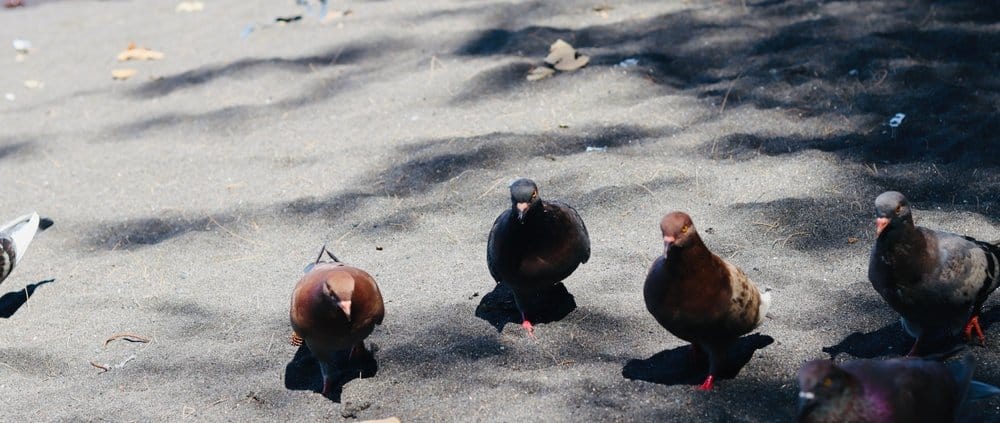Do Birds Have A Sense Of Smell?
If you take a close look at birds, you might notice that they have tiny nostrils, called nares, on the sides of their beaks. For years, it was believed that birds used these nares almost exclusively for breathing and not for smelling. Even famed naturalist John James Audubon was certain that because birds possessed superior eyesight, they never had a need to develop a sense of smell. However, research today seems to have proven this widespread belief to be incorrect. So, which is it? Do birds have a sense of smell or not? And if so, what are some scents they enjoy, and what scents do birds hate?
Can Birds Smell?
Yes, it turns out that birds can smell, and that they use this sense for a variety of purposes. For example, according to Smithsonian magazine, birds can identify one another through their scent and may even choose a mate because of the way a feathered soulmate smells. Some birds also use scent to choose a nesting site.
Many birds also use their sense of smell to find food. For example, storm petrels, which are seabirds, use their sense of smell to locate krill, their main food source. Then there are turkey vultures: These birds actually have a much larger olfactory bulb relative to their brain volume than other birds, which has given them an incredibly keen sense of smell. Turkey vultures can, in fact, pick up the scent of rotting flesh (ethyl mercaptan) from more than a mile away.
This newfound knowledge about a bird’s ability to smell has been useful for creating non-lethal, humane tools that can be used to repel avian pests. Scents that repulse birds, for example, can be used to keep them away from crops or from damaging structures with their highly caustic droppings. Scent deterrents can also be used in the fight against avian-borne diseases.
What Smells Do Birds Hate?
The following are some of the scents that birds dislike:
- Garlic: This strong-smelling plant contains a chemical called allicin, which is an irritant to birds. When eaten in large amounts, garlic can also cause vomiting and other digestive issues in birds.
- Vinegar: Generally, birds do not like vinegar’s strong sour smell. When sprayed on plants or places where birds want to roost, vinegar can deter them from building nests.
- Methyl anthranilate: Used as a flavoring in foods, including ice cream and candy, and as a fragrance in perfumes, methyl anthranilate can also be used a bird repellent. It has a strong grape scent that is irritating to the trigeminal nerves in a bird’s beak, eyes and throat — but it is non-toxic and can be sprayed on food crops and plants that you want to protect from birds. Methyl anthranilate is the active ingredient in Bird Stop liquid, which is made from natural ingredients, including Concord grapes and gardenia blossoms.
- Peppermint: Most humans like the refreshing scent of peppermint. The same can’t be said for birds. They find this strong scent to be very irritating and will avoid areas that smell like peppermint.
What Smells Do Birds Like?
The following are scents that are attractive to birds. If you’re not interested in having feathered friends hanging out around your home or garden, you’ll want to do your best to remove these scents from your surroundings.
- Bird droppings: Gross as it may sound, birds are attracted to the scent of their own droppings. It is believed that they might find comfort from knowing that other birds also frequent the area in which the droppings have been left. To avoid birds returning to a previously infested area, thoroughly clean the area with a cleaner labeled for bird droppings before installing bird control products.
- Food: Not surprisingly, birds are attracted to the scent given off by their favorite food source, such as carrion for vultures.
Even when birds have become pests, most people would prefer to get rid of them in a safe and humane fashion. That’s why scent deterrents are one of the best ways to repel birds. They are effective, environmentally friendly and non-toxic. But scent repellents aren’t just for birds: They can also be used as a deterrent for all other pest animals, as well.




Leave a Reply
Want to join the discussion?Feel free to contribute!